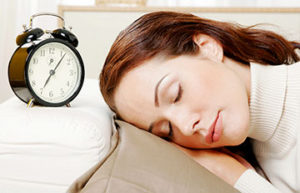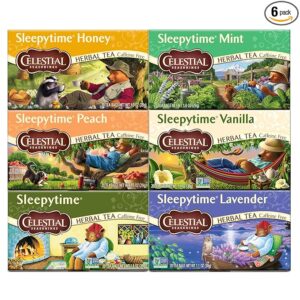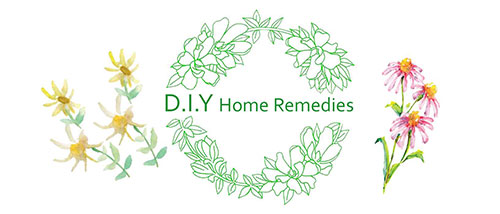 There are many herbal sleep aids available now, mostly in the form of herbal teas which are easy to access and prepare.
There are many herbal sleep aids available now, mostly in the form of herbal teas which are easy to access and prepare.
Insomnia is a terrible condition that affects a large portion of the country.
It can cause your productivity to decrease, your quality of work to suffer, and your mental and physical health to weaken.
Can Herbal Teas Help You Sleep Better?
The medications typically used to treat this condition tend to over-correct the issue and put you at risk of experiencing quite a few negative side effects.
Due to that, many people suffering from insomnia choose to exhaust all the natural options for remedies first.
One natural remedy that has shown results for many insomniacs is drinking herbal tea before going to bed. This can help calm and relax you, promoting restfulness and helping to fight your insomnia.
 Herbal Sleep Aids
Herbal Sleep Aids
Reseach shows that there are several herbal teas that, when consumed before bed, can help to promote better sleep while also providing you with a few other positive health benefits.
The following are our favorite herbal teas we’ve found work for improving your sleep and treating your insomnia.
• Chamomile
Chamomile tea has long been known for its calming effect. It can help regulate your sleep patterns, ease sore throats, and even works as an anti-inflammatory.
Chamomile is great served black but is most commonly served with cream or milk.
• Lemon Balm
Lemon balm can work wonders for many aspects of your health. It’s most well-known for its ability to help balance your nervous system.
It can help to ease palpitations and muscle spasms, treat insomnia, fight off stress, and can promote a well-functioning digestive system.
• Valerian
Valerian has long been used to calm nerves, relax muscles, and help promote better sleep. It can also help treat menstrual pains, body tremors, stomach discomfort, depression, and can help reduce stress.
• Lime Blossom
Like valerian, lime blossom is known to help fend off insomnia, relax your muscles, calm your nerves, and alleviate pain. It can also help to minimize the symptoms of arthritis and respiratory conditions.
• Hops
Hops work wonders for those plagued by insomnia, as it has a sedative effect. It can help to reduce stress, improve your digestive system, treat migraines, and serves as an aphrodisiac.
• Mint
Mint is known to help stabilize the nervous system, minimizing digestive issues and stomach discomfort, fights gastritis, treats muscle spasms, and helps trigger sleep.
Passion-Flower
Passion-flower is often used for its relaxing, calming, and sleep-inducing benefits.
It’s been known to help with lightheadedness, anxiety, withdrawal symptoms, and reduce inflammation of blood vessels.
There are some proprietary blends that can aid sleep such as Heath And Heather “Nighttime”
How to Get the Most Out of Your Herbal Insomnia Treatment
While these herbal teas can help, you have to help set them up for success. You can ensure you’re getting the most out of your insomnia-fighting tea by improving your sleep habits.
1. Stick to a Sleep Schedule
Keeping a consistent bedtime and wake-up time can help regulate your body’s internal clock.
Try to go to bed and get up at the same time every day, even on weekends. Consistency strengthens your sleep-wake cycle, making falling asleep and waking up easier.
2. Create a Relaxing Bedtime Routine
Developing a calming pre-sleep ritual can ease the transition from wakefulness to sleep.
Consider activities like reading a book, taking a warm bath, or practicing relaxation exercises.
Avoid stimulating activities before bed, as they can interfere with your ability to fall asleep.
3. Watch What You Eat and Drink
Your food and drink choices, especially in the hours leading up to bedtime, can impact your sleep.
Try to avoid heavy meals, caffeine, and alcohol close to bedtime. While they may help you relax, they can disrupt your sleep later in the night.
4. Optimize Your Sleep Environment
Make your bedroom conducive to sleep. This means keeping it cool, dark, and quiet. Consider using blackout curtains, earplugs, or a white noise machine.
A comfortable mattress and pillow are also key to a good night’s sleep.
5. Limit Exposure to Electronic Devices
The blue light emitted by phones, tablets, and computers can interfere with your body’s natural sleep-wake cycle.
Try to turn off electronic devices at least an hour before bed.
Reading a book or listening to calming music can be a good alternative.
6. Get Regular Physical Activity
Engaging in regular exercise can help you fall asleep faster and enjoy deeper sleep.
Aim for about 30 minutes of moderate exercise most days. Just avoid vigorous workouts close to bedtime, as they can have the opposite effect.
7. Manage Stress
Stress and worry can keep you up at night, making it difficult to fall asleep.
Consider incorporating stress-reducing techniques into your daily routine, like mindfulness meditation or deep breathing exercises.
Writing down your thoughts can also help clear your mind.
8. Keep Naps Short
While naps can be beneficial, they can also interfere with nighttime sleep if too long or taken too late in the day.
If you need a nap, try to limit it to 20 to 30 minutes and avoid napping in the late afternoon.
9. Seek Professional Help if Needed
If you’ve tried various techniques but still struggle with sleep, consider seeking help from a healthcare professional.
Sleep disorders like insomnia or sleep apnea may require specialized treatment.
While herbal teas will help, as long as you’re practicing poor sleeping habits, you’ll never get the most out of your herbal tea treatment.
If you’ve struggled with insomnia, you know the level of desperation for rest that plagues insomniacs on a regular basis.
You’d try just about any treatment recommended by friends or doctors just in the hope of finally getting some relief from your insomnia and getting some much needed sleep.
Herbal sleep aids could be the answer you’ve been looking for.
